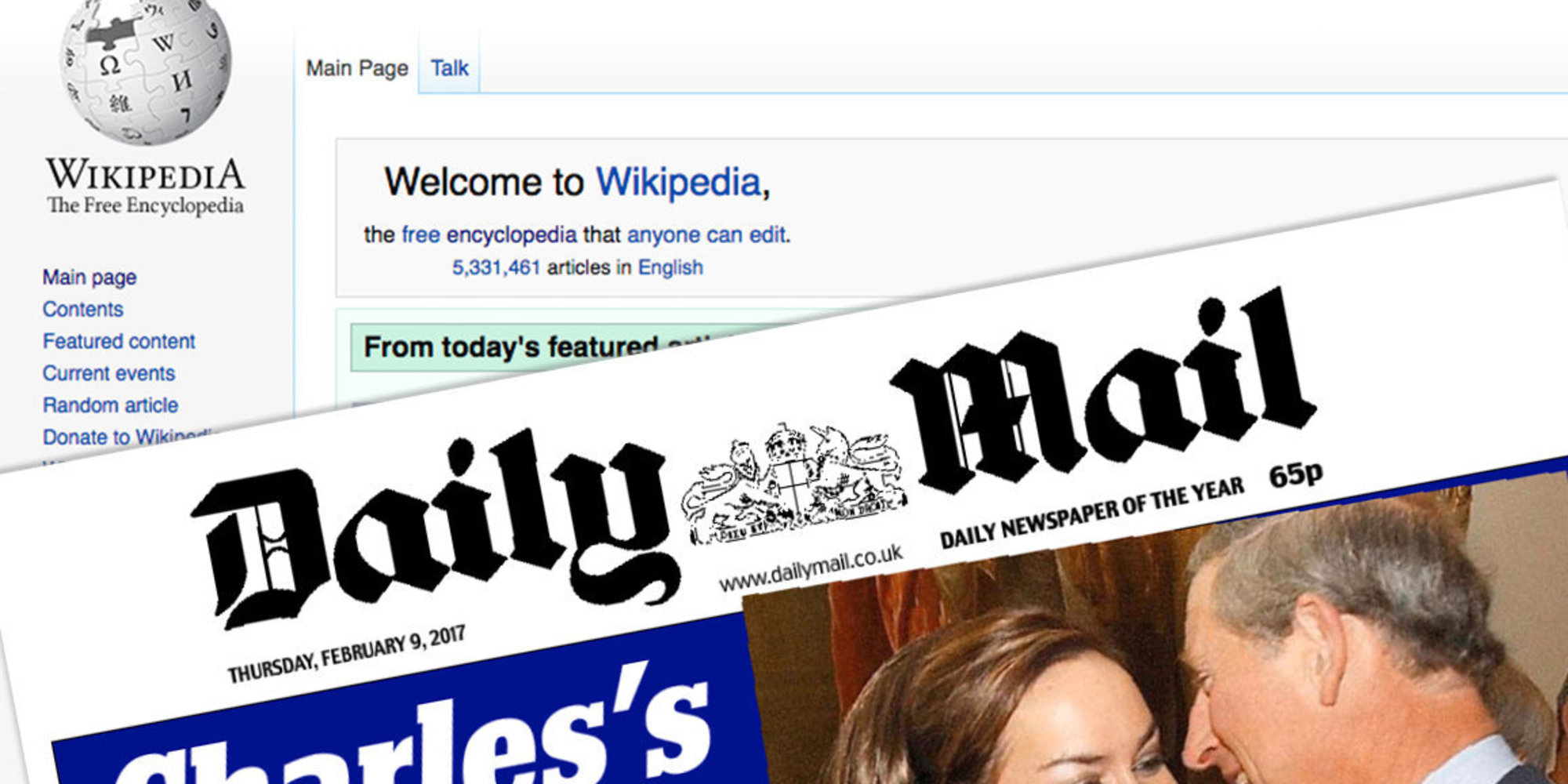In an unprecedented move for the online encyclopaedia, English Wikipedia have voted to ban The Daily Mail as a source for citation, claiming it to be ‘generally unreliable’. The paper is now prohibited from being used in contributions to the English section of Wikipedia, save for ‘exceptional circumstances’. This decision comes in the midst of a wide-ranging debate regarding the media crisis of ‘fake news’, dragged into the spotlight during the recent presidential election amidst the wealth of untrue stories circulating the internet.
Among many circles, professional or closer to home, there are a number of newspapers that are considered less trustworthy than others. The Daily Mail and The Sun are the first to come to mind, and while Wikipedia’s argument that the former has a ‘reputation for poor fact checking, sensationalism and flat-out fabrication’ is not something outside the realm of accuracy, there is a wider issue at play.
It is important to note that the editors voting to enforce this ban are volunteer editors, and that Wikipedia itself has not always enjoyed a trustworthy reputation of their own. With the nature of the site relying on public contributions and opening it up to issues of truthfulness, it seems as if this ban may be an instance of throwing rocks in glasshouses. The decision was confirmed by editors designated as ‘closers’, who hold the authority to do so, but was suggested by dozens of volunteers who can simply create an account and add whatever they please to pre-existing articles. Even the WikiProject Fact and Reference Check asks for contributions from members of the public, which raises the question of whether this makes the website a democratic one or one contributing to the issues of fake news.
While The Daily Mail has been banned from Wikipedia, there are a number of other questionable sources that remain allowed to serve as sources of so-called reliable information. Kremlin-backed Russian organisation Russia Today and the American Fox News are two prime examples of news institutions oft questioned for their authenticity which remain eligible for citation. It may be unreasonable to expect Wikipedia to instantaneously ban all forms of media that are questionable, but there seems to be an element of hypocrisy for the site to claim other media outlets are too unreliable, considering that the entire process of Wikipedia involves battling untrue contributions.
Regardless of the complexities of whether Wikipedia is right in making the move of prohibiting The Daily Mail, this ban is significant in light of the wider debate of fake news. It is a prime example of the tension between a need for a free press within society, versus a growing desire for checks to be made against explicitly false articles.
As part of an entirely complicated and raging debate about fake news, while Wikipedia may have been an unlikely source for a first categorical step towards removing the toxicity of fake news, it marks an important declaration of priorities – one that evidently is required by other institutions.
With important political figures – Kellyanne Conway and Sean Spicer being two prime and relevant examples – doing their utmost to blur the line between truth and lies, there needs to be a willingness to identify those that make matters worse, but perhaps not shut them out. Even if such a confident move is made in an effort to cleanse the current state of many modes of media and the news, it opens a dangerous route to press censorship if those in power decide they want to try and shut down publications they consider to be telling a lie.
Free press is integral to our democratic society, and while it can be necessary to take certain articles with a pinch of salt – or even disregard them entirely – it is undeniably risky to take a stand and block a news outlet, considering the precedent it can set for more ‘trustworthy’ publications internationally.
Elise Middleton
(Image courtesy of the Huffington Post UK)

